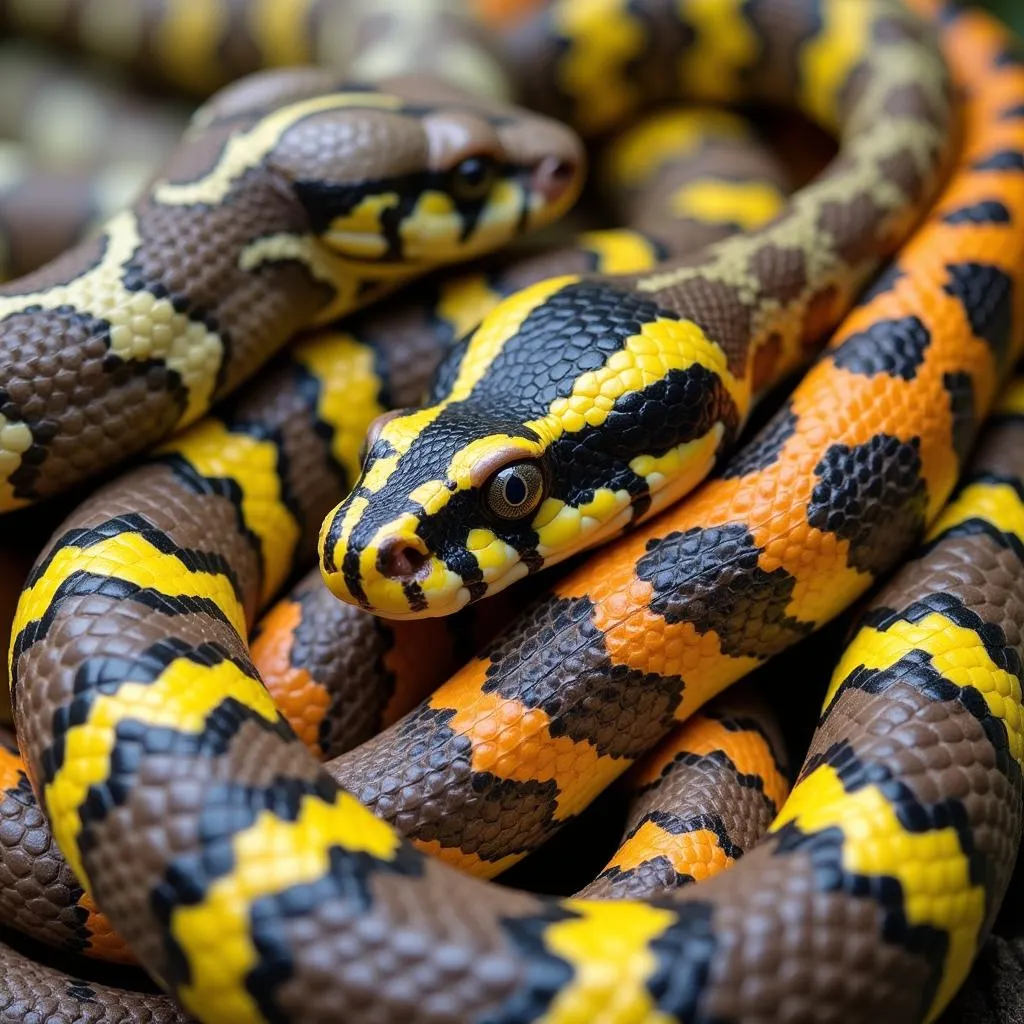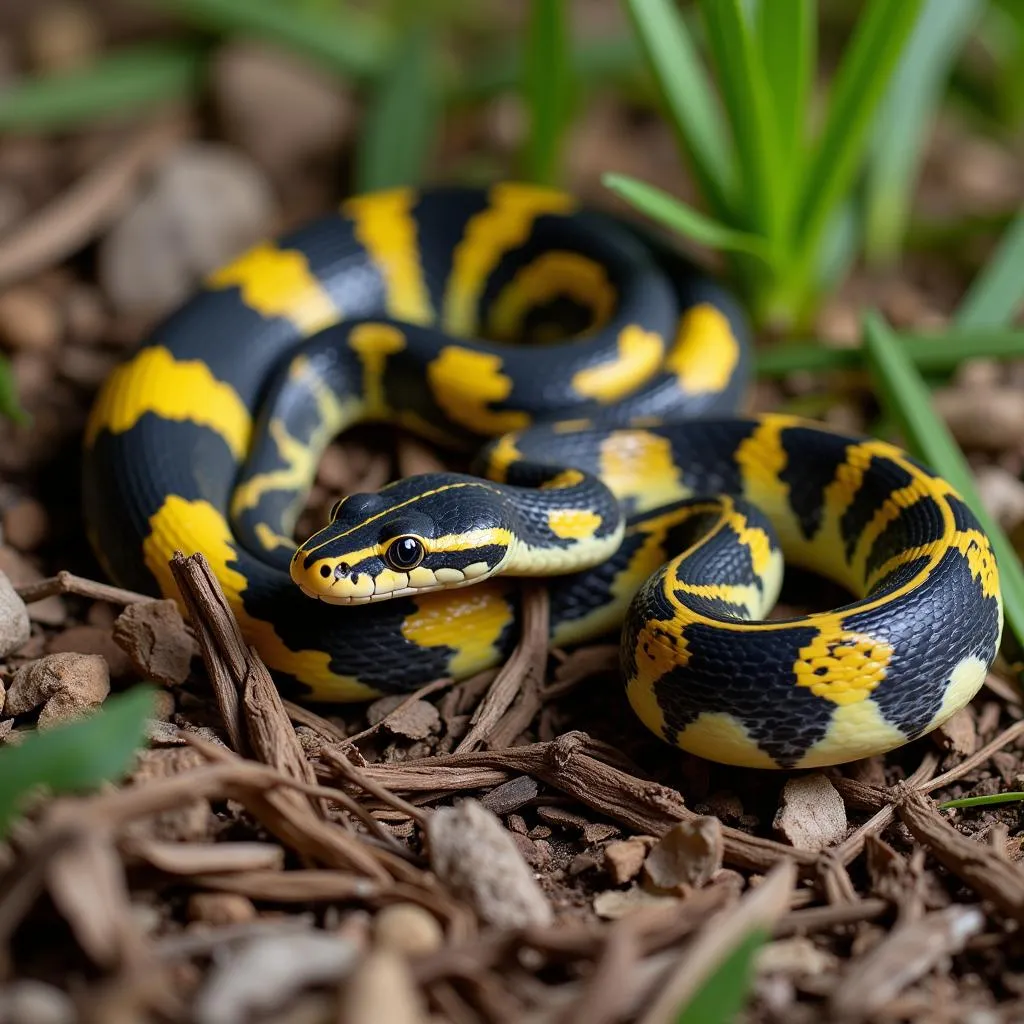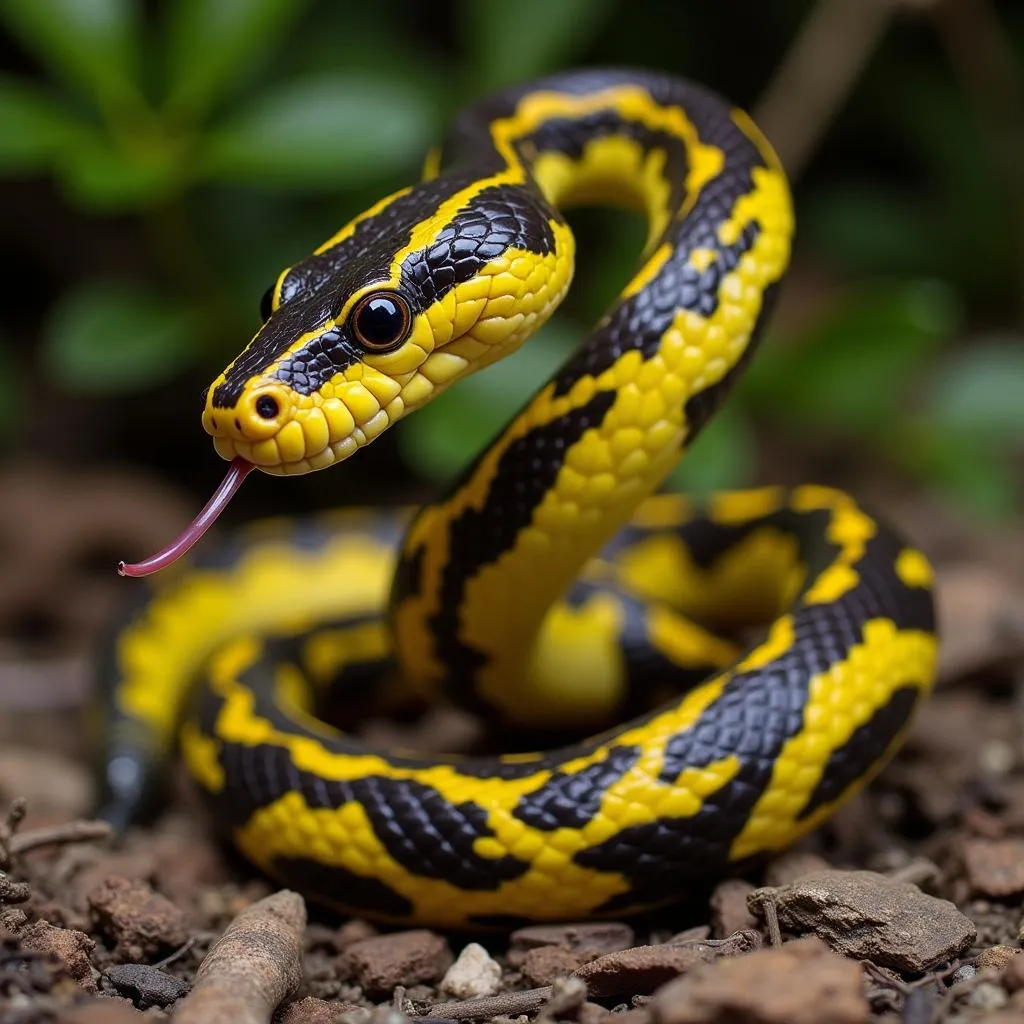Garter snakes are common reptiles found throughout North America, often spotted slithering through gardens and parks. While many people associate snakes with vibrant colors, garter snakes showcase a more subtle beauty, with a diverse range of patterns and shades that can vary depending on the species and their geographical location. So, what color are garter snakes? Let’s delve into the fascinating world of their coloration and discover the reasons behind their diverse appearance.
Understanding Garter Snake Coloration
Garter snakes typically exhibit a base color of gray, brown, or olive green, providing them with excellent camouflage in their natural habitats. This base color is often accented by longitudinal stripes that run the length of their bodies. These stripes can be bright yellow, orange, red, white, or even blue, creating striking contrasts against the darker background.
 Garter snake color variations
Garter snake color variations
Factors Influencing Garter Snake Colors
Several factors contribute to the wide array of colors and patterns observed in garter snakes.
1. Species Diversity
There are over 30 species of garter snakes, each with its unique color variations. For instance, the Eastern Garter Snake often displays black stripes on a greenish-brown background, while the California Red-Sided Garter Snake features vibrant red stripes bordering a black dorsal stripe.
2. Geographical Location
Garter snakes from different regions may exhibit variations in color and patterns, even within the same species. This geographical variation is often attributed to environmental factors such as habitat and prey availability.
3. Age and Sex
Juvenile garter snakes typically have brighter and more distinct markings than adults. Additionally, males and females of some species can display subtle color differences, with females often being duller in coloration.
 Juvenile garter snake
Juvenile garter snake
The Purpose of Garter Snake Coloration
The colors and patterns of garter snakes serve various purposes, primarily focused on survival.
1. Camouflage and Protection
The base colors and patterns of garter snakes provide excellent camouflage, allowing them to blend seamlessly into their surroundings. This camouflage helps them avoid detection by predators such as birds of prey, raccoons, and larger snakes.
2. Species Recognition
The distinct color patterns of different garter snake species aid in species recognition, allowing individuals to identify potential mates within their own species. This is particularly important during the breeding season when snakes are actively seeking partners.
3. Warning Signals
Some garter snake species possess bright, contrasting colors that serve as warning signals to potential predators. These colors, often red or orange, indicate that the snake may be venomous or possess a foul-tasting musk, deterring predators from attacking.
 Garter snake in a defensive posture
Garter snake in a defensive posture
Conclusion
Garter snakes exhibit a remarkable diversity of colors and patterns, ranging from subtle shades of gray and brown to vibrant stripes of yellow, orange, and red. These colors are not merely decorative; they play crucial roles in the snakes’ survival, aiding in camouflage, species recognition, and predator deterrence. Understanding the reasons behind garter snake coloration provides a glimpse into the fascinating world of these adaptable reptiles. So, the next time you encounter a garter snake, take a moment to appreciate the unique beauty of its coloration and the evolutionary significance it holds.

